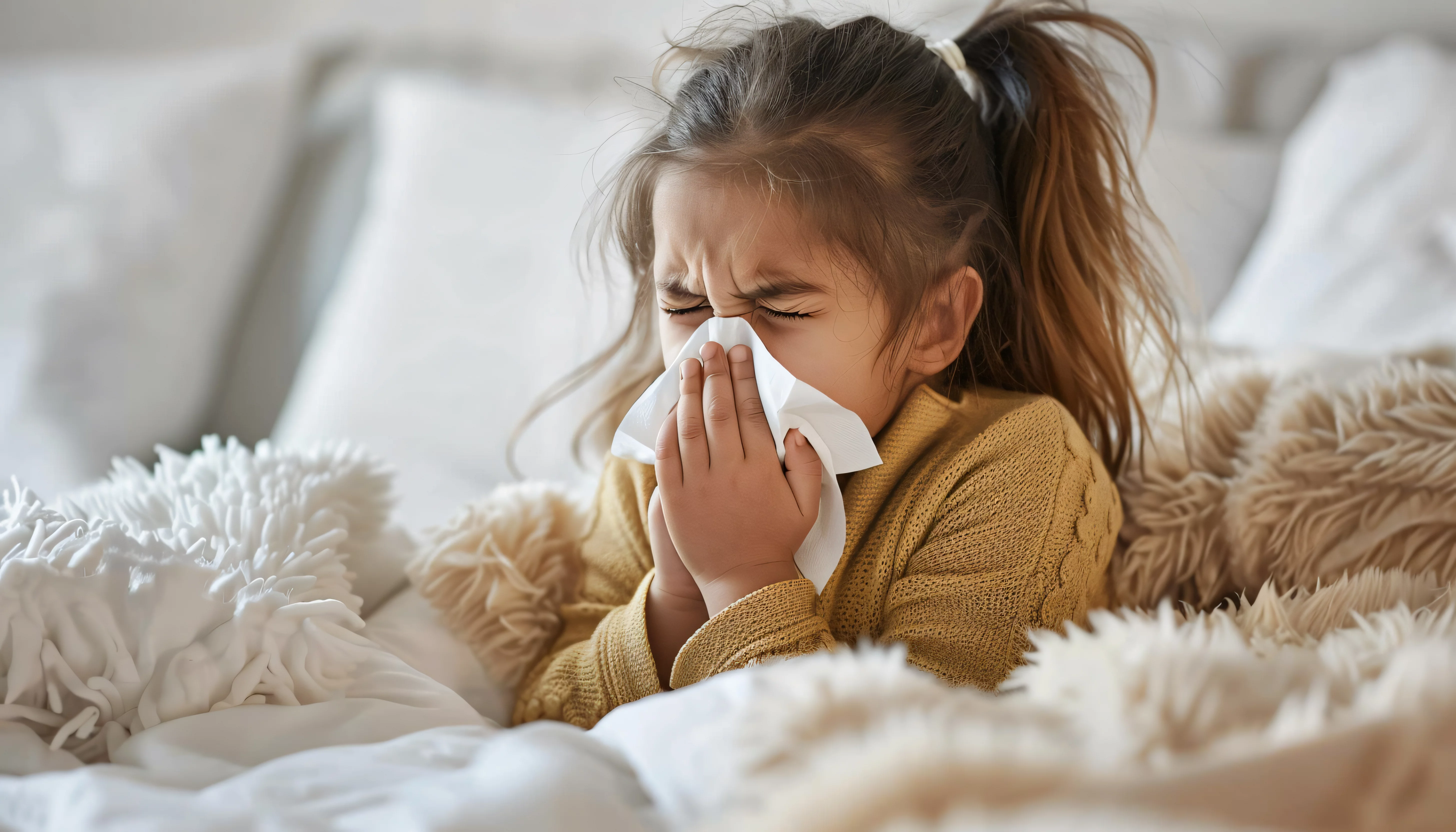"By continuously filtering your indoor environment, an air purifier improves air quality and provides long-term relief from the triggers of indoor allergies."
)
Are you constantly sneezing even when you're inside your home? While it may seem like a mild nuisance, frequent sneezing indoors could be a sign of something more serious. The culprit is often indoor allergies, which can be triggered by invisible particles and pollutants in your environment. Here’s a look at the common causes and what you can do to solve them effectively.
Sneezing is the body’s natural way of clearing out irritants from the nose. However, when sneezing becomes persistent at home, it is often linked to indoor allergies caused by a range of hidden triggers.
Soft furnishings, mattresses, and carpets often harbor dust mites and mold spores. These microscopic allergens thrive in warm, humid areas and can cause chronic sneezing and discomfort.
Homes with little ventilation or sealed windows can accumulate pollutants, allergens, and even volatile organic compounds, leading to poor indoor air quality. Poor air circulation allows these particles to stay suspended in the air, leading to indoor allergies.
Cigarette smoke, strong cleaning products, air fresheners, and incense can irritate your nasal passages. These are not allergens in the traditional sense, but they can trigger sneezing in sensitive individuals.
Even if you don’t have a known pet allergy, the buildup of pet dander on furniture and in the air can lead to symptoms similar to indoor allergies. These particles can linger on carpets, curtains, and bedding, making it easy to inhale them throughout the day.
Bathrooms, kitchens, and even air conditioning units are common places where moisture can allow mold to grow unnoticed. Breathing in these spores can cause or worsen indoor allergies. Mold often spreads behind walls or under flooring, making professional inspection essential when symptoms persist.
An air purifier is one of the most effective solutions for reducing sneezing caused by the issues listed above. A purifier with a HEPA filter can capture up to 99.97 percent of airborne particles such as dust, pet dander, mold spores, and pollen. It also helps remove chemical irritants and smoke from the air, which can further aggravate symptoms. By continuously filtering your indoor environment, an air purifier improves air quality and provides long-term relief from the triggers of indoor allergies. For best results, place purifiers in high-use areas such as bedrooms and living rooms, and replace filters regularly.
Understanding the causes is important, but taking action is what makes the difference. Here are the most effective ways to reduce sneezing and improve your home's environment.
Adding an air purifier to your home is a simple yet powerful upgrade. It supports your entire allergy-prevention strategy by continuously filtering the air and complementing other cleaning efforts. Even if you vacuum regularly or keep windows closed, microscopic particles can still linger. A purifier helps reduce what your eyes can’t see and your cleaning tools can’t reach. Choose a quiet, energy-efficient model and let it run daily in spaces where you spend the most time. This consistent filtration can significantly reduce day-to-day exposure to the triggers behind indoor allergies, making your home feel noticeably fresher.
If symptoms persist despite regular cleaning, an indoor air quality test can uncover hidden irritants such as mold spores, dust, or chemical pollutants. This gives you a clearer picture of what’s in your air and allows you to target specific sources of indoor allergies.
"By continuously filtering your indoor environment, an air purifier improves air quality and provides long-term relief from the triggers of indoor allergies."
Dust and debris can build up in your air conditioning ducts and vents, circulating allergens throughout your home. A professional AC cleaning service removes these particles and helps improve airflow, reducing one of the major contributors to indoor allergies.
Sofas, mattresses, and cushions trap allergens deep within their fabric. Regular vacuuming only handles surface dust. A professional furniture cleaning can eliminate the buildup of dust mites and allergens that contribute to indoor allergies and create a healthier home.
Mold often hides in areas like bathrooms, behind walls, or inside AC units. If left untreated, it can lead to both respiratory problems and long-term health concerns. Professional mold inspections and remediation services help eliminate these threats and reduce your risk of indoor allergies.
Cockroaches, rodents, and their droppings are known triggers of indoor allergies. These pests tend to hide in kitchens and storage areas, so regular pest control is essential to maintain a clean and allergy-safe environment.
Persistent sneezing indoors is often your body’s way of alerting you to poor air quality or hidden allergens. By addressing the root causes, such as dust, mold, and pet dander, and taking proactive steps like using an air purifier, getting your AC cleaned, and testing your air, you can greatly reduce the impact of indoor allergies on your daily life.
With a few simple changes and regular maintenance, your home can become a place of relief and fresh air, not sneezes.
